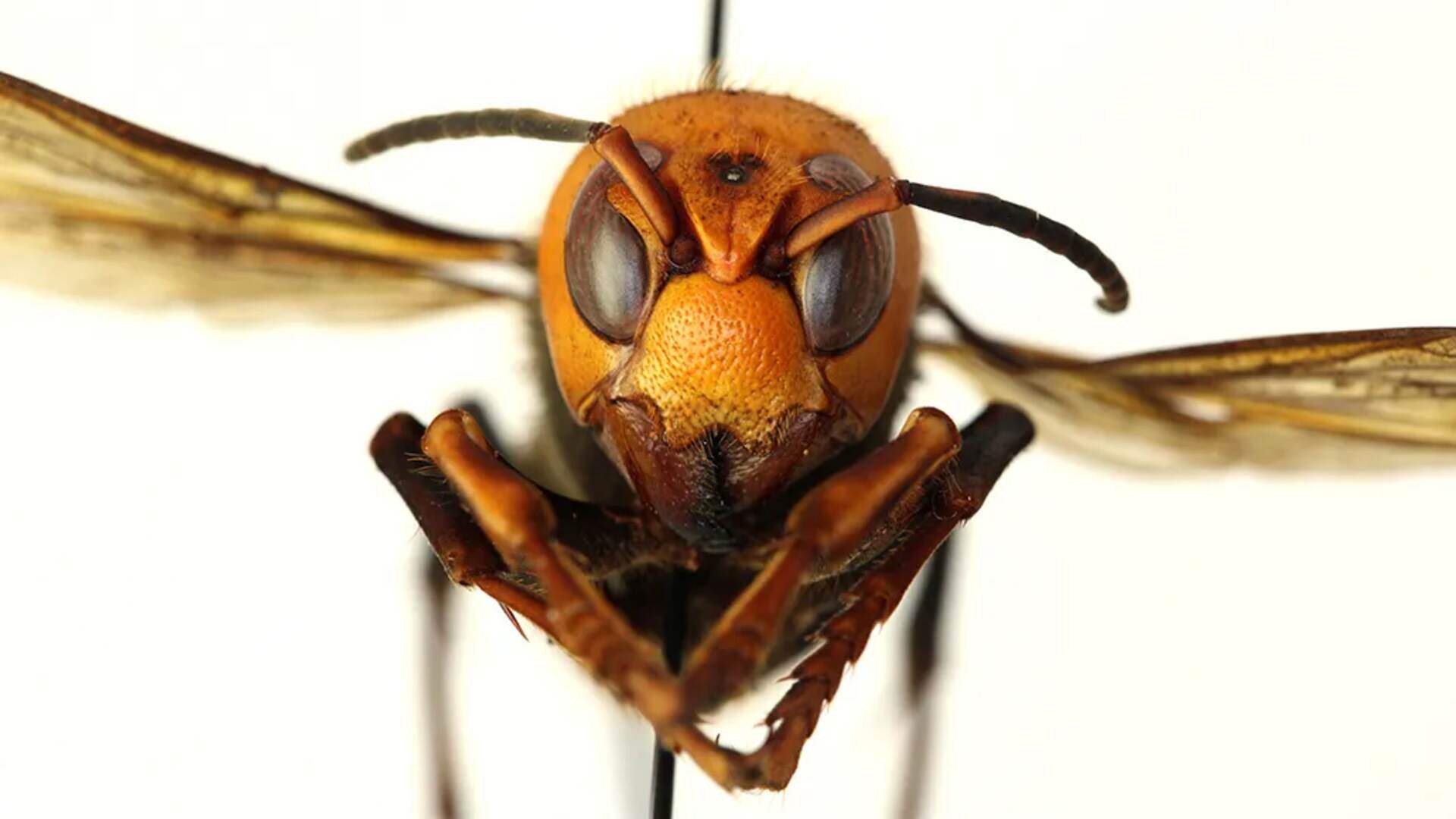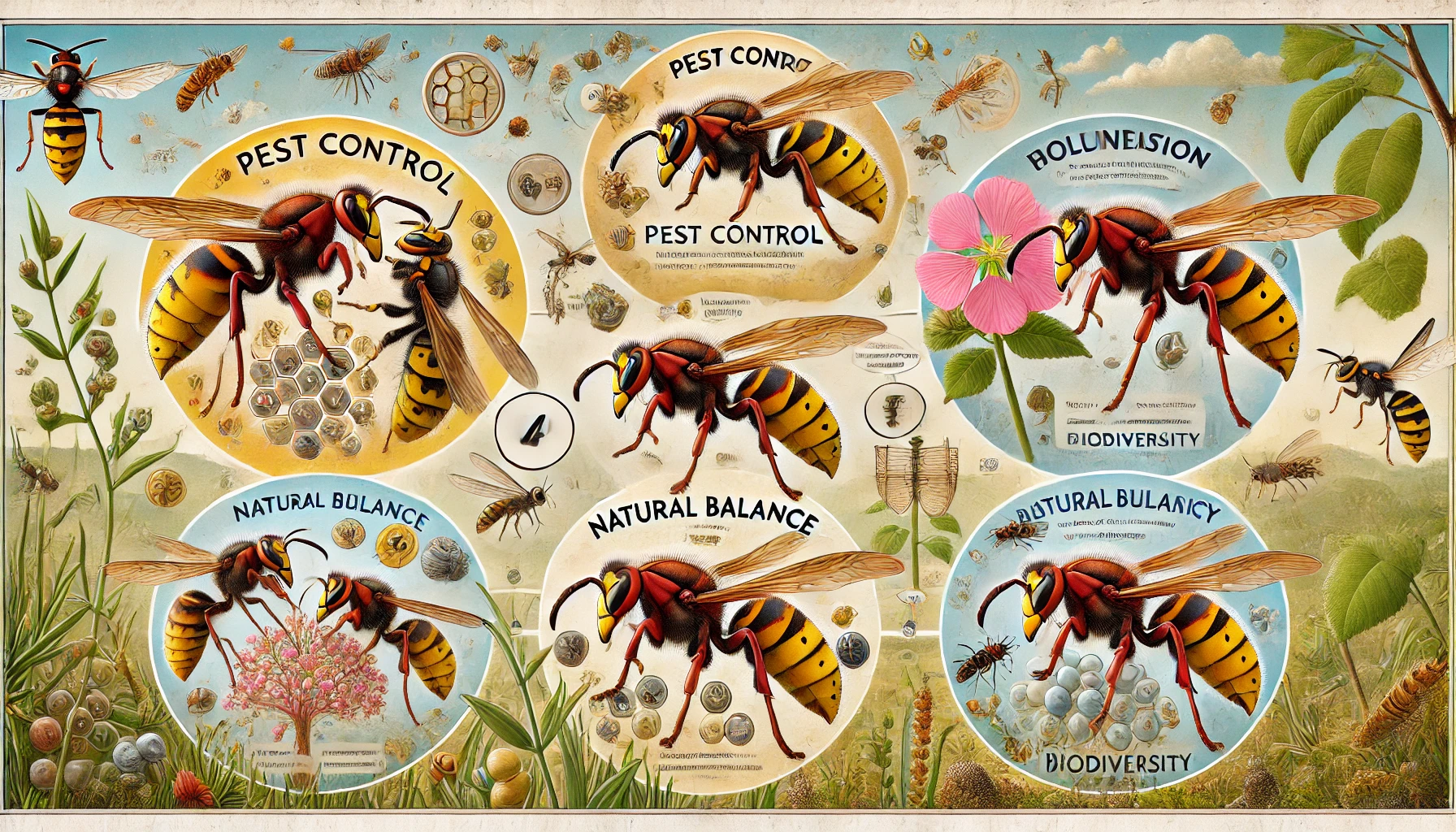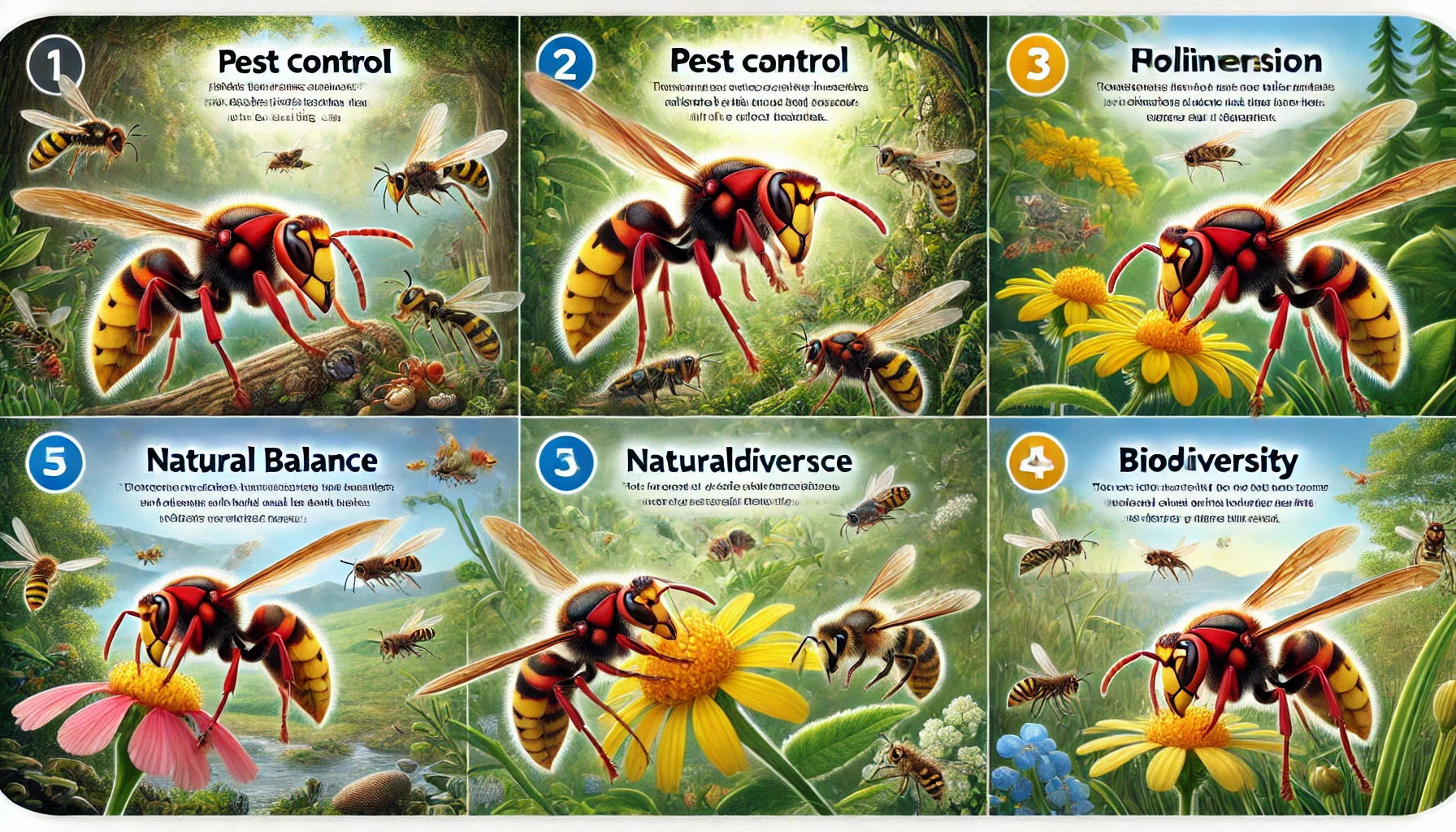Key Takeaways
- Hornets naturally control pest populations, reducing the need for harmful pesticides.
- They contribute to pollination, helping plants grow and reproduce.
- Hornets aerate the soil, promoting healthier plant growth.
- They maintain ecological balance by preventing any species from becoming too dominant.
- Hornets are valuable for scientific research and education.
 Honest remarks reveal that hornets usually create two mental pictures: stinging pain and buzzing aggression. Hornets frequently fly by your location, creating panic even if you have personally experienced multiple such meetings with these insects. Hornets maintain crucial positions in the natural ecosystem despite public perception to the contrary. You know what? As natural creatures of the environment, hornets manage valuable tasks that support the well-being of nature.
The following article examines why hornets cross the mere nuisance status threshold. Natural pest management, plant pollination, and enhancing your garden development make hornets essential insects for the environment. The conclusion will probably earn more admiration from hornets.
Honest remarks reveal that hornets usually create two mental pictures: stinging pain and buzzing aggression. Hornets frequently fly by your location, creating panic even if you have personally experienced multiple such meetings with these insects. Hornets maintain crucial positions in the natural ecosystem despite public perception to the contrary. You know what? As natural creatures of the environment, hornets manage valuable tasks that support the well-being of nature.
The following article examines why hornets cross the mere nuisance status threshold. Natural pest management, plant pollination, and enhancing your garden development make hornets essential insects for the environment. The conclusion will probably earn more admiration from hornets.
Hornets: Nature’s Own Pest Control
Hornets perform one of their fundamental task, although often unnoticed, tasks through pest control. You’ve seen them hunting, right? Flying in all directions while making low gliding movements to catch flying insects. Through their activities, the hornets demonstrate valuable assistance in human affairs. The insect diet of hornets consists primarily of flies, caterpillars, and beetles during their meals, which pose serious threats to garden plant life and agricultural cultivation.Using pesticides to eliminate pests is a common practice that everyone must have experienced. Hornets provide pest control without using any synthetic chemicals, and this service is free of charge. These insects solve a traditional dilemma with their natural approach. These tiny flying creatures protect us from pests as they navigate through our environment with no harmful toxic effect on the ecosystem. Honestly, that’s pretty impressive, right?


Not getting a solution?
Get your free pest control estimate today!The Surprising Role of Hornets in Pollination
The discussion about pest regulation continues through this point but adds information about hornets’ role in pollination. Hornets join bees as valuable agents who help flowers achieve pollination although bees remain the top professionals within this operation. Hornets gather pollen during their quests for nectar by contacting flowers while sipping and then spread this pollen between different flowers.Although hornets contribute limited assistance to pollination compared to bees they play a small but crucial role in the process. The fertilization of plants by hornets results in beneficial plant reproduction required for healthy seed production that stabilizes ecosystems. Hornets function as vital pollinators although many people don’t notice this aspect of their busy activities because they work unnoticed throughout the ecosystem.
How Hornets Help Your Soil (Yes, Really)
It might sound strange, but hornets can actually help your soil. Certain hornet species like to nest underground, and when they do, they burrow into the earth, which naturally aerates the soil. Why does this matter? Well, soil needs air to function properly. When it’s aerated, it allows better water infiltration, helps roots grow deeper, and gives plants more access to nutrients.This process, which might seem small, actually makes a big difference in plant health. So, if you’ve ever had a hornet’s nest in your garden (and didn’t freak out about it), you might’ve been unknowingly benefiting from healthier plants thanks to their underground nesting.
Keeping Ecosystems in Balance
Here’s the thing about ecosystems—they need balance. And hornets are key players in keeping that balance. They help prevent any one species from taking over by controlling the population of pests and pollinating various plants. Without hornets, you could see an overgrowth of certain insects, which could harm plants or other animals that rely on those plants for food.Hornets don’t just keep things in check for themselves—they help the whole ecosystem thrive. They’re an integral part of the food chain, too, serving as food for birds, mammals, and other predators. So, by keeping pests under control and promoting biodiversity, hornets help maintain the health and stability of ecosystems everywhere.
Hornets in Science and Education
You might not expect it, but hornets are actually pretty valuable to science. Researchers study hornet behavior, their social structures, and how they interact with other species to learn more about ecology and animal behavior. Understanding hornet populations and their impact on ecosystems gives scientists insight into the broader picture of how our environment works.Plus, hornets are used in educational programs to help people understand the importance of insects in nature. These programs often change the way people think about hornets—turning them from “pests” into “partners” in nature. It’s all about changing perceptions and recognizing the value they bring to the ecosystem.

Should You Be Worried About Hornets?
Now, I know what you’re probably thinking: “Okay, hornets are doing all this great stuff, but should I be worried if I see one near my house?” Here’s the thing: hornets generally aren’t interested in stinging people. They’re too busy with their roles in nature—if you leave them alone, they’ll leave you alone.However, if you happen to have a nest near your home (especially if it’s in a high-traffic area), it’s best to call a professional to deal with it. Disturbing the nest can provoke hornets, and trust me, you don’t want that. But, if you’re interested in attracting hornets to your yard to help with pest control, planting flowers like sunflowers, asters, or goldenrod can do the trick. Hornets are drawn to these nectar-rich blooms, and you’ll get the added bonus of natural pest management. Hornets: They might not be as scary as you think. In fact, they’re doing a lot of work behind the scenes to keep nature balanced and thriving. Sure, they’re a bit intimidating when they buzz by, but understanding the good they do can make us rethink how we approach these misunderstood insects. The next time you spot a hornet, maybe take a moment to appreciate the quiet service they’re providing for the environment—and your garden.
If you feel things have gone out of control, it is advised to contact pest control professionals. Our team can provide a customized approach to protect your home effectively.
Visit our Species, Control, and DIY Guide sections for additional resources on hornets and ways to tackle a hornets infestation.





